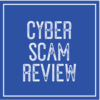Geek Squad is a well-known computer repair company owned by Best Buy. Recently, there have been reports of a scam email circulating that appears to be from Geek Squad. The email claims that the recipient’s computer has been infected with a virus and provides a link to a website where the recipient can pay to have the virus removed. Alternatively, the crooks might also use other narratives that are likely to push you towards taking quick action.
However, this is a scam and the website linked in the email is not affiliated with Geek Squad. If you receive any sort of email that contains questionable things and traits, do not click on the link or provide any personal information. Instead, report it to the company and delete the email.
To learn more about the intention of the crooks along with the kind of steps you need to take in order to tackle the problem, continue reading.

How does Geek Squad Scam Operate?
The Geek Squad Scam email is a phishing scam that uses a fake email address to try and trick people into giving away their personal and financial information. The email looks like it’s from the Geek Squad, but it’s actually from a scammer who’s trying to steal your information.
The email might say that you need to update your account information or that there’s a problem with your account. It might also say that you need to confirm your credit card information or that you’ve won a contest. Whatever the message, the goal is to get you to click on a link or open an attachment that will install malware on your computer or device.
The malware can then be used to steal your information or to hold your device for ransom. If you get an email like this, don’t click on any links or open any attachments. Delete the email and report it to the company it’s pretending to be from.
Tips to detect scam emails
As the world increasingly moves online, so do the opportunities for scammers. One of the most common types of scams is phishing, where scammers send fake emails purporting to be from a legitimate company in order to trick people into giving them personal information or money. While these scams can be difficult to spot, there are a few things you can look out for to help you detect them.
First, be wary of any emails that contain misspellings or grammatical errors. Scammers are often in a hurry to get their message out and may not take the time to proofread their emails.
Secondly, be suspicious of any email that asks for personal information or financial information.
Legitimate companies will not ask for this type of information via email.
Get in touch with our affiliated Cryptocurrency Forensic Specialists at CNC Intelligence for free by filling out the form below.
Finally, if an email seems too good to be true, it probably is. If an offer in an email sounds too good to be true, be sure to do your research to make sure it is legitimate before responding.
By following these tips, you can help protect yourself from becoming a victim of a scam.
Report Geek Squad Scam Email
If you believe you have been the victim of a Geek Squad scam, there are a few steps you can take to report it.
First, try to gather as much information about the incident as possible, including any documentation or communication you have with the scammer.
Then, contact the FCA or FTC and file a complaint. You can also contact your local law enforcement agency to report the scam.
Finally, you can warn others about the scam by sharing your story on social media or other online forums.
Precautions
Most phishing scams can be avoided by following some simple common-sense rules.
If you receive an email that looks suspicious, even if it appears to be from a trusted source, do not click on any links or open any attachments.
If you are unsure about the email, contact the sender directly to confirm that it is legitimate.
You should also be cautious of any emails that ask you for personal or financial information. Legitimate companies will not request this type of information via email. If you receive such an email, do not respond and instead contact the company directly to inquire about the request.
Additionally, be sure to keep your computer and software up to date. Outdated software can be exploited by scammers, so it is important to install security updates as soon as they are available.
By following these simple tips, you can help protect yourself from phishing scams.
User Reports
On May 18, 2023, we received the following complaint from a person who received the Geek Squad scam email:
They stated that they will be withdrawing $419.00 from my account (which account I am unaware of) for an automatic renewal.
The email included a URL.
Again, we remind you to be cautious when clicking on unfamiliar links or providing personal information online.
Suppose you received an email stating that a certain amount will be deducted from your account for automatic renewal, and you are unsure about the details or which account it refers to. In that case, it is recommended to take the following steps:
- Verify the legitimacy: Check the email address of the sender to see if it matches the official email address of the service or company they claim to represent. Look for any signs of suspicious or fraudulent activity, such as poor grammar, spelling mistakes, or requests for personal information.
- Contact the company directly: If you have concerns about the email, reach out to customer support or contact the company directly using their official website or verified contact information. They can confirm whether the email is legitimate or if it’s a phishing attempt.
- Review your account statements: Regularly monitor your bank and credit card statements to ensure there are no unauthorized charges. If you notice any suspicious transactions, contact your financial institution immediately to report the issue and take appropriate action.
Remember, always prioritize your online security and exercise caution when dealing with unsolicited emails or requests for personal information.
Complaints We Received
On July 21, 2023, one of our partners received the following complaint from a person who reported losing more than $7.3K for this scam:
My mother received an email that appeared to be from Geek Squad. Unfortunately, it was just a phishing email. Instead of calling me, she contacted them and followed their instructions.
On November 8, 2023, one of our partners received the following complaint:
I received an email with an invoice numbered 77509 DYHRD611585SR, purportedly from Geek Squad associated with Best Buy, for computer protection services dated November 8, 2023, amounting to $234.33. It instructed me to call 1-833-487-5869 for any inquiries. Upon calling, I was given a license ID (888DCA60-FC08-11CF) and the name Alex Wilson. He attempted to guide me to log into my computer to cancel the transaction. I did not comply with this request nor did I provide any personal information. I contacted Best Buy directly and confirmed that there was no such invoice, and I have not been charged. Best Buy advised me to report this incident to your site.
Geek Squad Scam Email Conclusion
Fraudulent emails and phishing scams are way too common nowadays. If you ever receive a scam email, do not interact with it in any manner. Simply delete it and report it to the concerned parties.
As long as you follow the steps we have covered above, you won’t be facing any issues for the most part.
In case you need help with recovering money from this type of hustle, get in touch with us via the contact form provided below.
If you have received any form of Geek Squad Scam Email, then delete it immediately. Also, do not forget to share your story below.
When you comment, your name, comment, and the timestamp will be public. We also store this data, which may be used for research or content creation in accordance with our Privacy Policy. By commenting, you consent to these terms.

